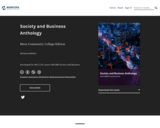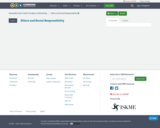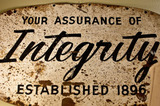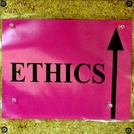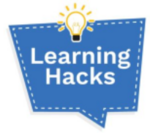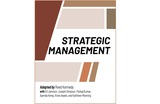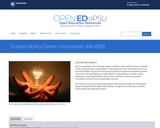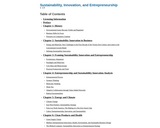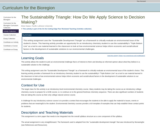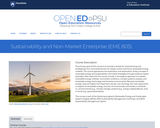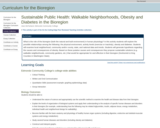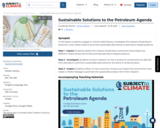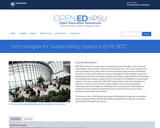Strategic Management (2020) is a 343-page open educational resource designed as an introduction to the key topics and themes of strategic management. The open textbook is intended for a senior capstone course in an undergraduate business program and suitable for a wide range of undergraduate business students including those majoring in marketing, management, business administration, accounting, finance, real estate, business information technology, and hospitality and tourism. The text presents examples of familiar companies and personalities to illustrate the different strategies used by today’s firms and how they go about implementing those strategies. It includes case studies, end of section key takeaways, exercises, and links to external videos, and an end-of-book glossary. The text is ideal for courses which focus on how organizations operate at the strategic level to be successful. Students will learn how to conduct case analyses, measure organizational performance, and conduct external and internal analyses.
If you are an instructor reviewing, adopting, or adapting this textbook, please help us understand your use by filling out this form http://bit.ly/strategy-interest
How to Access this Book This text is available in multiple formats including PDF, a low-resolution PDF which is faster to download, Open Document Format (ODT), and ePub. It is also available online in Pressbooks at https://pressbooks.lib.vt.edu/strategicmanagement. Softcover print on demand options are available in color interior (https://www.amazon.com/dp/1949373940) or black & white interior (https://www.amazon.com/dp/1949373894). The main landing page for this book is: https://doi.org/10.21061/strategicmanagement.
Attribution This textbook was adapted for use in Virginia Tech’s Pamplin College of Business capstone course, MGT 4394 Strategic Management, and is shared under a Creative Commons Non-Commercial ShareAlike 3.0 license. It is adapted without attribution to the original 2010 author or publisher at their request. It is adapted from Mastering Strategic Management which was published by the University of Minnesota Publishing in 2015 as an adaptation of the 2010 version. University of Minnesota Publishing reformatted the original text, and replaced some images and figures to make the resulting whole more shareable but did not otherwise significantly alter or update the original 2010 text.
Powerpoint slides are available at http://hdl.handle.net/10919/102735
A testbank only for instructors is also available at http://hdl.handle.net/10919/104179
Instructor Resource Portal in OER Commons
https://www.oercommons.org/groups/strategic-management-instructor-group/5209
Table of Contents
Chapter 1: Mastering Strategy: Art and Science
Chapter 2: Assessing Organizational Performance
Chapter 3: Evaluating the External Environment
Chapter 4: Evaluating the Internal Environment
Chapter 5: Synthesis of Strategic Issues and Analysis
Chapter 6: Selecting Business-Level Strategies
Chapter 7: Innovation Strategies
Chapter 8: Selecting Corporate-Level Strategies
Chapter 9: Competing in International Markets
Chapter 10: Executing Strategy through Organizational Design
Chapter 11: Leading an Ethical Organization: Corporate Governance, Corporate Ethics, and Social Responsibility
About the Author / Editorial and Production Teams
Version Notes
Glossary
This work is published by Virginia Tech’s Pamplin College of Business in association with Virginia Tech Publishing.
Suggested Citation Kennedy, Reed. (2020) Strategic Management. Blacksburg, VA: Virginia Tech Publishing. https://doi.org/10.21061/strategicmanagement CC BY NC-SA 3.0
Contributors
About the Previous Author
The publisher of the 2010 version of this book requested that they and the original author not receive attribution.
This Version
Primary Contributor: Reed B. Kennedy
Reviewer / Contributors: Eli Jamison, Joseph Simpson, Pankaj Kumar, Ayenda Kemp, Kiran Awate, and Kathleen Manning
Cover Design, Illustration, and Alternative Text; Student Reviewer: Kindred Grey
Research and Editorial Assistant; Student Reviewer: Kathleen Manning
Managing Editor: Anita Walz
Production Editor: Robert Browder
Copyeditors: Grace Baggett, Lauren Holt
ISBN 978-1-949373-94-3 (print-color)
ISBN 978-1-949373-89-9 (print-black & white)
ISBN 978-1-949373-96-7 (ebook-PDF)
ISBN 978-1-949373-95-0 (ebook-Pressbooks)
https://pressbooks.lib.vt.edu/strategicmanagement
DOI: https://doi.org/10.21061/strategicmanagement
Accessibility Virginia Tech Publishing is committed to making its publications accessible in accordance with the Americans with Disabilities Act of 1990. The HTML and screen reader–friendly PDF versions of this book utilize header structures and include alternative text which allow for machine-readability.

